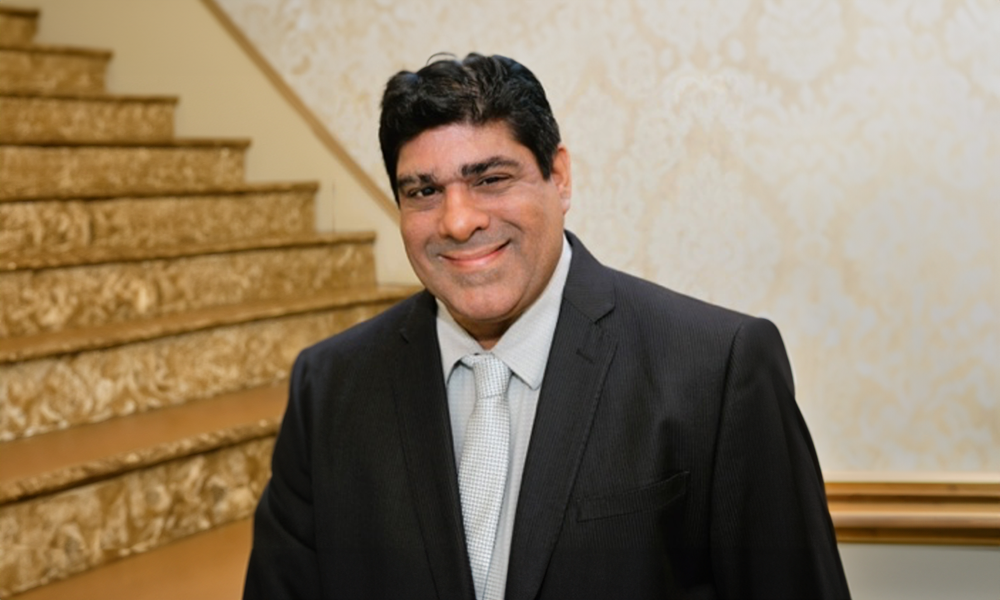Opposition to raising the cap on charter schools in Massachusetts is outpacing support in the latest statewide survey by the Western New England University Polling Institute.
The telephone survey of 403 likely voters, conducted Sept. 24 through Oct. 3, found 47 percent oppose increasing the number of new charter schools or expansions of existing charter schools, while 34 percent support the proposal. Eighteen percent were undecided, while one percent declined to state a position.
Among the larger sample of 467 registered voters, 45 percent oppose the ballot question, and 36 percent favor it. The Polling Institute had found in a survey conducted April 1-10, 2016, that a bare majority of registered voters – 51 percent – supported lifting the cap, while 26 percent were opposed.

The ballot question calls for the state to approve up to 12 new charter schools or expansions of existing charter schools each year. “Public sentiment on this issue has shifted significantly in the past six months,” said Tim Vercellotti, director of the Polling Institute and a professor of political science at Western New England University. “Opponents have gained the upper hand with five weeks to go until Election Day.”
The Polling Institute asked voters about four statewide ballot questions that they will consider in the general election on Nov. 8. The sample of 403 likely voters has a margin of error of plus or minus five percentage points. The survey also found:

52 percent of likely voters said they support legalizing the use of marijuana by individuals ages 21 and older, while 42 percent said they were opposed. Among the larger sample of registered voters, 55 percent said they support legalization, while 39 percent were opposed. The 16-point advantage among registered voters is down from a 22-point margin in favor of legalization that the Polling Institute found in its April survey.
48 percent of likely voters oppose licensing a second slots parlor in Massachusetts, while 30 percent support the proposal.
By an overwhelming margin of 61 percent to 26 percent, voters said they support a proposal that would prohibit raising hens, calves and pigs in confined spaces.
The survey found that an increasing percentage of voters are focusing on the charter school question as the election approaches. Twenty-eight percent of likely voters said they are following the issue “very closely,” while 35 percent said they are following the issue “somewhat closely.” More than one-third of likely voters said they are following the issue “not very closely” or not at all closely.”
Among all registered voters, 26 percent said they are following the issue “very closely,” up from 17 percent in April, while 34 percent of all voters said they are following the issue “somewhat closely,” up from 25 percent in April.
Charter schools are independent public schools that operate under charters granted by the state, and are funded with tax dollars. Such schools can develop their own curriculum and hire and fire teachers and staff, but must show good results within five years or risk losing their charter, according to the state Department of Elementary and Secondary Education. The state has limited the number of charters that it will issue, and supporters of charter schools are seeking to raise the cap. Proponents say that charter schools can provide an alternative for students whose local public schools are under-performing, while opponents say that charter schools take away tax dollars from other public schools.
Opposition to raising the cap outweighed support across most demographics in the latest survey, with a few exceptions. Nonwhite voters, primarily African-American and Latino voters, support lifting the cap by a margin of 47 percent to 36 percent. Among white voters, who typically make up more than 80 percent of the electorate in Massachusetts, only 32 percent support the measure, while 49 percent are opposed.
Republican voters are narrowly divided, with 45 percent in favor and 42 percent opposed. More than half of Democrats – 57 percent – oppose the ballot question, while 27 percent support it. Among unenrolled voters, 37 percent support the expansion and 42 percent are opposed.
Opinion also varies somewhat by region. About half of likely voters oppose the ballot question, with one-quarter to one-third favoring it, in Western and Central Massachusetts and in Boston and surrounding suburbs. Support for charter school expansion edges opposition, however, on the North and South Shores, by a margin of 44 percent to 39 percent.
Vercellotti noted that, with 18 percent of likely voters reporting they are undecided and more than one-third not following the issue very closely, there is still room for significant change in public opinion. “The matter is far from settled,” he said. “A lot could happen between now and Election Day.”
This election will mark the third consecutive presidential election cycle in which Massachusetts voters have considered a ballot question pertaining to marijuana. Voters approved the use of marijuana for medical purposes by a margin of 63 percent to 37 percent in 2012. Voters also approved a proposal to decriminalize possession of an ounce or less of marijuana by a margin of 65 percent to 35 percent in 2008, according to the Elections Division in the office of the Massachusetts Secretary of the Commonwealth.
The latest Polling Institute survey found that voter sentiment on marijuana legalization for individuals ages 21 and older is divided along traditional demographic lines of age, partisanship and gender. Among voters ages 18 to 39, 81 percent said they would support legalization, with 12 percent opposed and seven percent undecided. Support was significantly lower among older age groups, with only 38 percent of likely voters 65 and older saying they support legalization and 54 percent opposed.
Democrats support legalization by a margin of more than two to one, 63 percent to 30 percent, while unenrolled voters are evenly divided, with 47 percent supporting the question and 46 percent opposed. Among Republican voters, only 30 percent back legalization, while 65 percent are opposed. Fifty-seven percent of male likely voters said they support legalization, while only 47 percent of female likely voters said the same.
Public opinion on the prospect of licensing a second slots parlor in the state tilted toward opposition, with 48 percent of likely voters saying they are against the ballot question and 30 percent supporting it. But about one in five voters – 21 percent – said they were undecided on the issue. Among Democrats, 45 percent were opposed and 26 percent were in favor of the question, but 28 percent were undecided. Republicans supported the question by a margin of 45 percent to 33 percent, with 20 percent undecided. Among unenrolled voters, 56 percent opposed the question, 28 percent supported it, and 16 percent were undecided.
Vercellotti noted that the large percentage of undecided voters may indicate that views on the issue are not strongly held, and that voter sentiment could shift in significant ways before the Nov. 8 election. “This may not be an issue that is front and center for voters right now,” he said.
Voters offered somewhat clearer signals on the ballot question regarding living conditions for farm animals. The survey asked voters: Do you support or oppose a law that would prohibit raising hens, calves and pigs in spaces that prevent them from lying down, standing up, fully extending their limbs, or turning around freely?” By a margin of more than two to one – 61 percent to 26 percent - likely voters said they would support the question, while 12 percent were undecided.
Support for the question was highest among Democrats – 69 percent to 17 percent. Among Republicans, 40 percent supported the question while 45 percent were opposed, while unenrolled voters backed the question by a margin of 59 percent to 29 percent.
Views varied significantly by age, with younger voters more likely to back the question. Seventy-four percent of voters ages 18 to 39 supported the question, while 21 percent opposed it. Among likely voters ages 65 and older, 48 percent favored the question, while 30 percent were opposed.
To view the full detailed report click here or use this link:
http://www1.wne.edu/news/2016/10/BallotQuestions_Tables100516.pdf
METHODOLOGY
The Western New England University Polling Institute conducted a telephone survey Sept. 24 – Oct. 3, 2016. Western New England University sponsored and funded the study. The survey sample consists of telephone interviews in English only with 526 adults ages 18 and older drawn from across Massachusetts using random-digit-dialing. The sample yielded 467 adults who said they are registered to vote in Massachusetts, and 403 voters classified as likely to vote in the Nov. 8, 2016 general election. Voters were classified as likely voters based on their responses to questions about interest in the upcoming election, likelihood of voting in the election, participation in the 2012 election, and knowledge of the location and name of their polling place.
Paid interviewers at the Polling Institute dialed household telephone numbers, known as “landline numbers,” and cell phone numbers using random samples obtained from Survey Sampling International of Shelton, CT. In order to draw a representative sample from the landline numbers, interviewers alternated asking for the youngest adult male or the youngest adult female age 18 or older who was home at the time of the call. Interviewers dialing cell phone numbers interviewed the respondent who answered the cell phone after confirming three things: (1) that the respondent was in a safe setting to complete the survey; (2) that the respondent was an adult age 18 or older; and (3) that the respondent was a resident of Massachusetts. The sample of all adults consisted of 265 interviews completed on landlines and 261 interviews completed on cell phones. The landline and cell phone data were combined and weighted to reflect the adult population of Massachusetts by gender, race, age, and county of residence using U.S. Census estimates for Massachusetts. The data also were weighted to adjust for cell phone and landline usage based on state-level estimates for Massachusetts from the National Center for Health Statistics and to adjust for voter registration by party using figures from the office of the Massachusetts Secretary of the Commonwealth. Complete results of the poll and the full text of the landline and cell phone versions of the survey are available at http://www1.wne.edu/polling-institute/index.cfm.
All surveys are subject to sampling error, which is the expected probable difference between interviewing everyone in a population versus a scientific sampling drawn from that population. The margin of sampling error for a sample of 467 registered voters is +/- 4.5 percent at a 95 percent confidence interval, and the margin of sampling error for a sample of 403 likely voters is +/- 5 percent at a 95 percent confidence interval. Thus if 55 percent of likely voters said they support legalizing the use of marijuana by individuals ages 21 and older in Massachusetts, one would be 95 percent sure that the true figure would be between 50 percent and 60 percent (55 percent +/- 5 percent) had all likely voters in Massachusetts been interviewed, rather than just a sample. Sampling error increases as the sample size decreases, so statements based on various population subgroups are subject to more error than are statements based on the total sample. Sampling error does not take into account other sources of variation inherent in public opinion studies, such as non-response, question wording, or context effects.
Established in 2005, the Western New England University Polling Institute conducts research on issues of importance to Massachusetts and the region. The Institute provides the University’s faculty and students with opportunities to participate in public opinion research. The Institute is a charter member of the Transparency Initiative, sponsored by the American Association for Public Opinion Research. The Transparency Initiative supports greater openness in the reporting of survey research methodology. Additional information about the Polling Institute is available from Dr. Tim Vercellotti, director of the Polling Institute, at polling@wne.edu.





